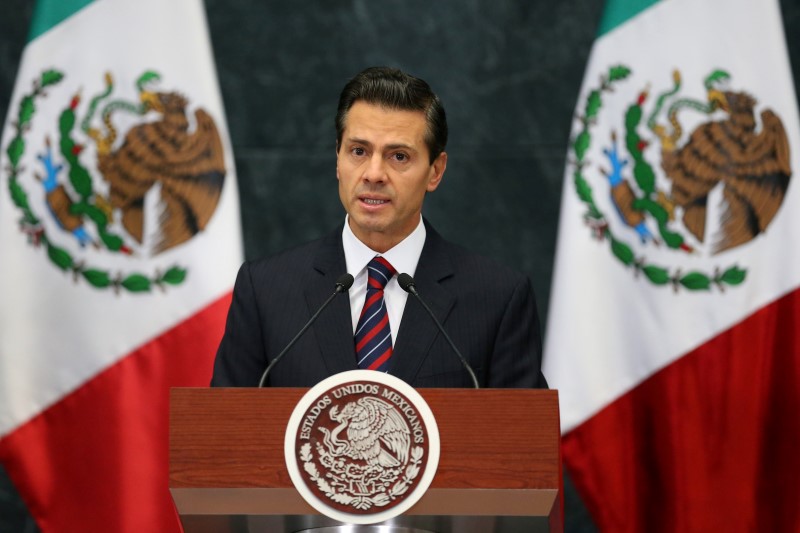By Gabriel Stargardter
MEXICO CITY (Reuters) - Mexican President Enrique Pena Nieto, who has proposed liberalizing his country's drug laws, privately asked California lawmakers visiting Mexico about a state measure to legalize recreational marijuana, a state legislator said on Thursday.
A delegation of California Democratic lawmakers visiting Mexico talked for an hour on Wednesday with Pena Nieto about trade and the state's border with Mexico.
During the meeting, Pena Nieto brought up the November ballot measure without getting into details, California state Senator Ben Allen said in an interview.
"But they're clearly paying close attention," he added.
If California votes to create a legal cannabis market, it would place great pressure on Mexico, which is mired in combating its vast drug-trafficking networks, to follow suit.
There was no mention of the California marijuana initiative in the presidency's report on the meeting, and Pena Nieto's office did not immediately respond to request for comment.
Pena Nieto has said the United States and Mexico should not pursue diverging policies on marijuana legislation and in April proposed a bill to allow Mexicans to carry up to an ounce of marijuana has stalled in Congress.
California's proposal would allow people over 21 years to possess up to an ounce of marijuana for private use and establish a system to license, regulate and tax sales of cannabis.
Recent polls show a majority of Californians favor legalizing marijuana.
Four U.S. states plus the District of Columbia already allow recreational use for adults. Voters in several more states, including the southern border state of Arizona, will consider similar legislation in November.
Long regarded as a conservative on drug policy, Pena Nieto has modified his stance since he took office in 2012, reflecting growing Latin American disenchantment with the war on drugs. A bill to legalize medical marijuana remains in Congress.

Ethan Nadelmann, the executive director of the Drug Policy Alliance, said he eventually expects Mexico to be swayed by the fiscal opportunities of regulated cannabis, which he believes could earn California around $1 billion a year in tax revenue.